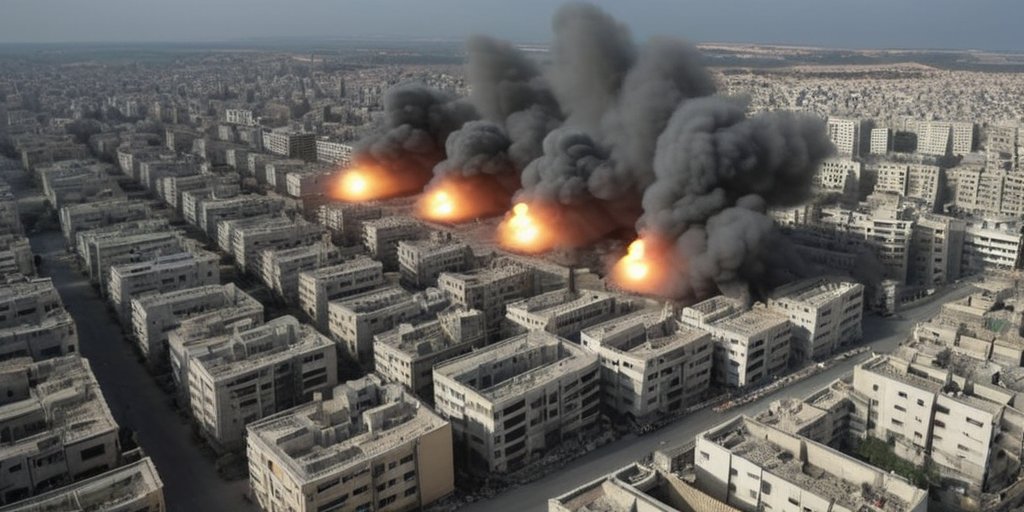In a significant escalation of violence in the Gaza Strip, Israeli Prime Minister Benjamin Netanyahu announced on Tuesday that Israel has resumed combat operations against Hamas with “full force.” This declaration marked the end of a fragile ceasefire that had been in place since January 19, with more than 400 casualties reported by the Hamas-run health ministry following the latest wave of airstrikes. Netanyahu, in a bold statement, emphasized that negotiations will only proceed “under fire” and characterized the actions as merely the beginning of Israel’s intensified campaign against Hamas.
The backdrop to this renewed violence includes mounting frustrations with stalled negotiations. The ceasefire agreement, established through negotiations involving the United States, Qatar, and Egypt, had yet to progress from its initial phase, which focused on the exchange of hostages. The Israeli government accused Hamas of repeatedly rejecting proposals intended to facilitate the release of Israeli hostages, further complicating the peace process.
Netanyahu asserted Israel’s objectives are clear: to secure the return of hostages, eliminate Hamas as a threat, and ensure enduring peace for Israel. The prime minister remarked, “We will continue to fight until all of our goals are achieved,” signaling a commitment to a comprehensive military approach.
Notably, the Trump administration’s involvement has been underscored by reports indicating that Israeli officials consulted American counterparts before launching the renewed airstrikes. The U.S. National Security Council spokesperson Brian Hughes reiterated that Hamas had opportunities to alleviate tensions by releasing hostages and opting for peace rather than conflict.
As the situation unfolds, tensions remain high. Hamas, on the verge of a humanitarian crisis, warned that renewed conflicts would result in dire consequences for hostages still held in Gaza, accusing Israel of attempting to force a defeat through military action. A group of families of hostages has vocally protested the Israeli government’s approach, claiming the new strikes equate to giving up on their loved ones held in captivity.
The situation continues to evolve, with hospitals in Gaza facing overwhelming medical emergencies amid ongoing airstrikes, while international observers closely monitor how this renewed conflict might affect broader Middle Eastern stability. This latest upheaval raises critical questions about the future of peace negotiations and the safety of hostages, revealing deep divisions in both Israeli and Palestinian strategies moving forward.
